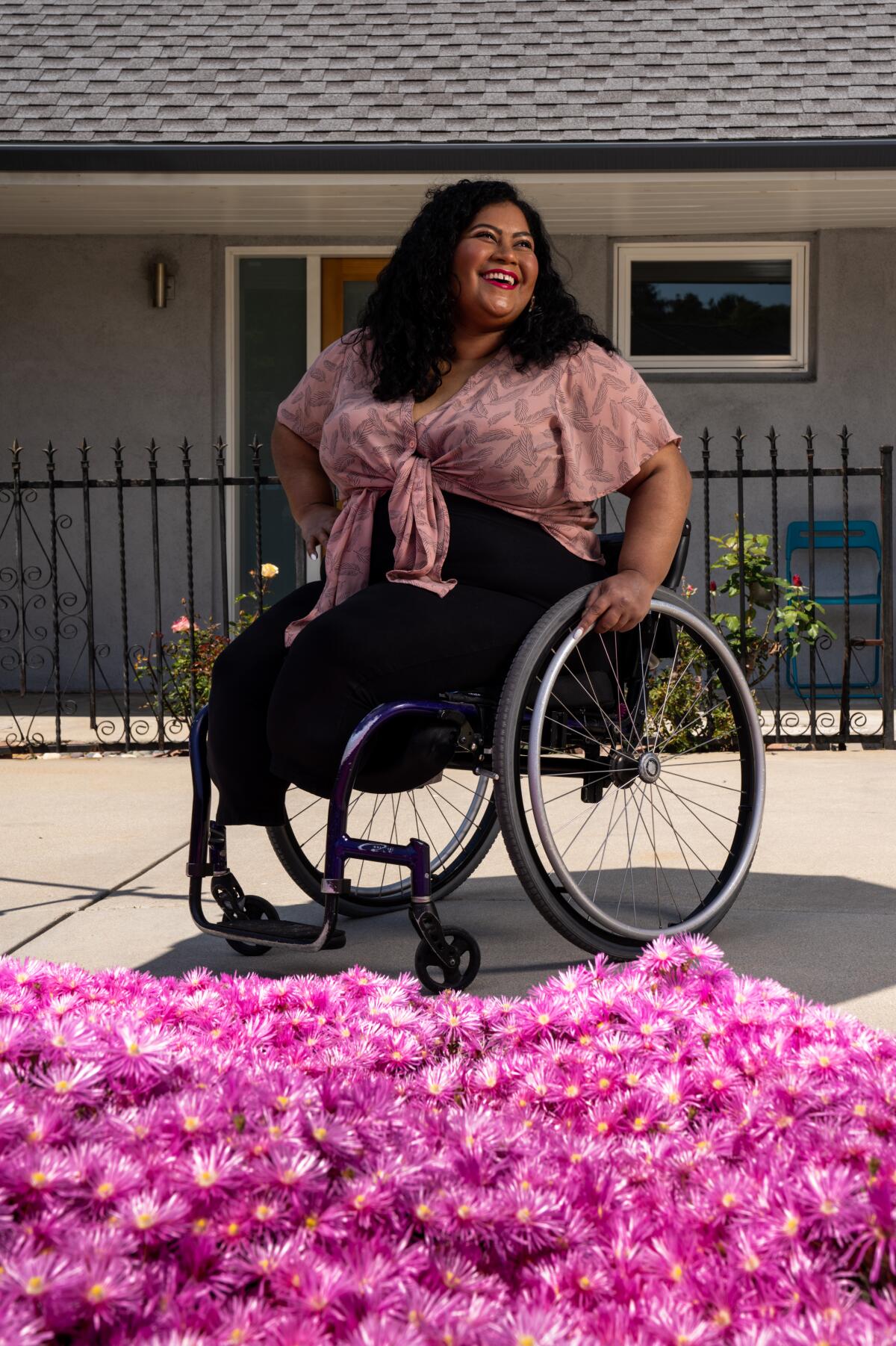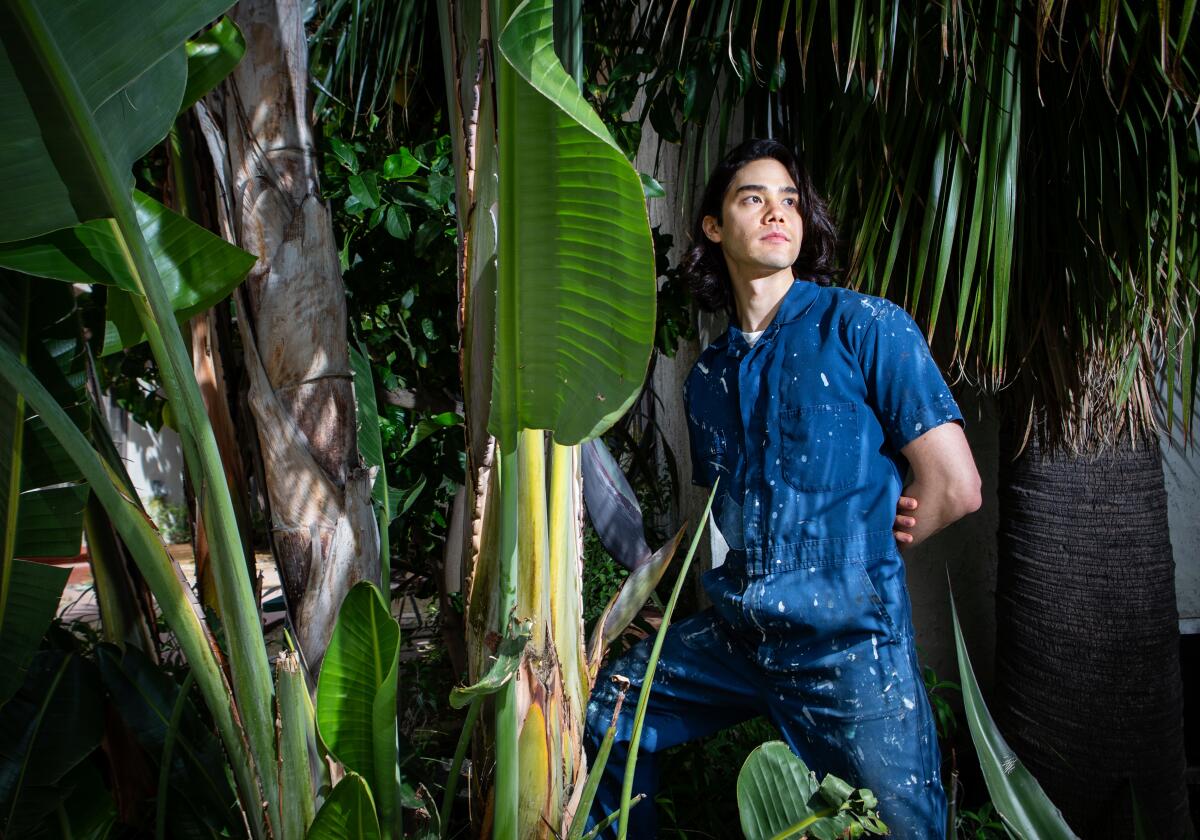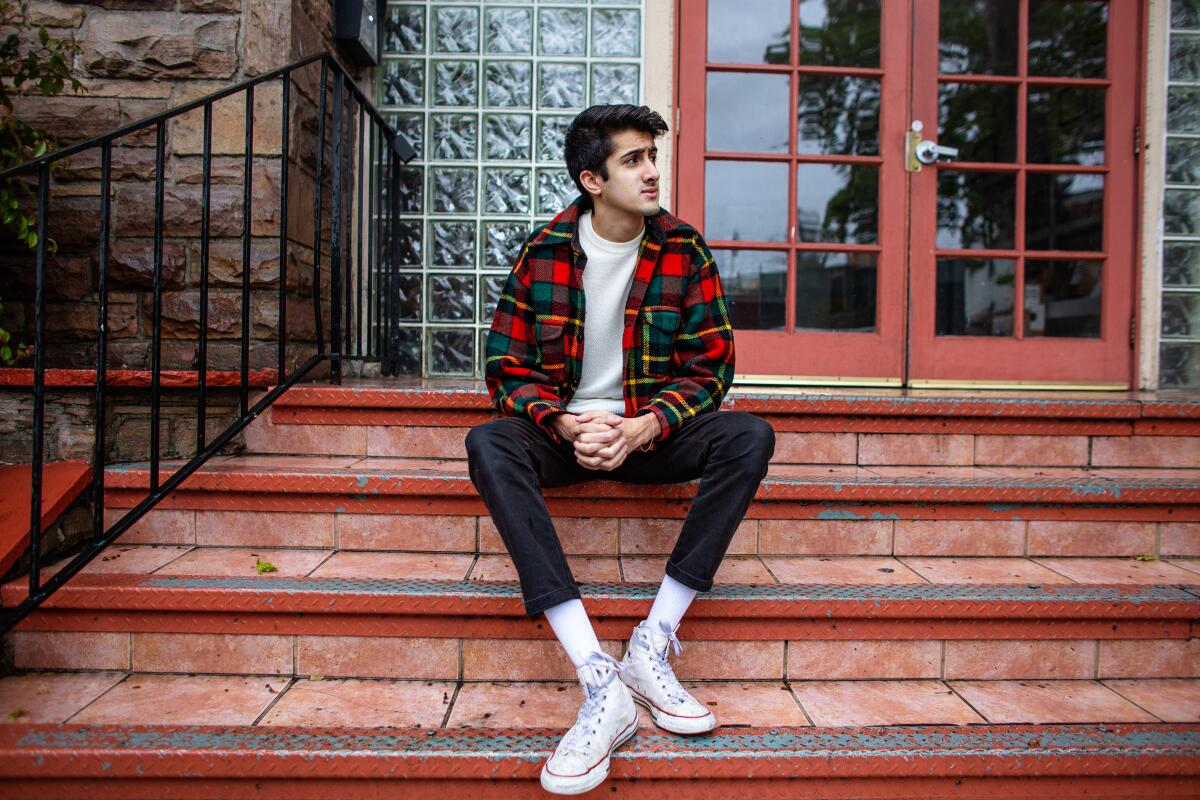They’re the future of Hollywood diversity, but coronavirus has their careers on hold

- Share via
The cheers reverberated through the El Portal Theatre in North Hollywood as the curtain dropped on the group of multicultural and LGBTQ artists who had just performed a torrent of in-your-face comedy sketches to an audience of agents, managers and creative executives from TV networks and production companies.
The performers hugged one another backstage, thrilled by the rousing response to their original material, peppered with catchy songs and raunchy humor. But they were even more pumped up by what was to come after the show: networking with industry insiders who could potentially cast them on a TV show, paving a path to stardom.
It was the prized payoff for the participants in January’s edition of the CBS Diversity Sketch Comedy Showcase, an annual talent forum designed to boost the chances of minorities seeking opportunities in Hollywood. Launched in 2006, the program has turned out such graduates as Kate McKinnon (“Saturday Night Live”), Tiffany Haddish (“Girls Trip”) and Nicole Byer (“Nailed It!”).
Afterward, four members of the group were signed to talent deals by CBS. One scored a role on a CBS pilot. Most went out on numerous auditions and meetings. All were optimistic.
“I had some great auditions and I hit them out of the park,” said Nathan Ramos-Park, who had a spotlight moment in the showcase playing an Asian country-western singer who has cleft palate surgery. “I also got some second rounds.”
Danielle Perez, a disabled comedian who was in several sketches, said: “I got so many positive responses. I felt things were really moving on the right track.”
Newscasts on local stations including KCBS, KCAL and Fox 11 have instituted changes to broadcasts, including allowing anchors and reporters to work from home and incorporating social distancing

Then the coronavirus outbreak struck, putting all of Hollywood on hold and derailing the momentum of the showcase hopefuls. Now they are left to face an uncertain future in an industry that even in the best of times has traditionally underrepresented women, people of color, queer and disabled people.
Perez, who had two projects in the works, including a recurring role on a Netflix series, was particularly upset when the entertainment industry came to a halt.
“It was devastating to shoot one show and getting ready to shoot another, and have both of them pause indefinitely,” she said.
“The uneasy feeling is the unknown,” said Ramos-Park. “We don’t know how long we have to quarantine.”
The shutdown is also frustrating for the executives steering the program.
“This year, we had an amazing response, perhaps the best we’ve had,” said Dorey Poder, the showcase’s executive producer. “It’s very unfortunate for our performers who did have a lot of momentum. They were given a lot of opportunities and, hopefully, they will get more when things pick up.”
From 4,000 to 5,000 performers from around the country apply to the CBS program, which is among several minority showcases sponsored by networks and others designed to increase diversity in prime time. The applicants are ultimately narrowed to 20 performers who get to display their talents during the showcase. The event is always scheduled in January, when networks and studios begin plans to cast pilots for the upcoming fall season.
Although the effect of the outbreak and the mandated guidelines of social distancing dealt a harsh setback to the players, they are making the best of it. Many are keeping their creative chops sharp by creating content for social media, writing and moving forward with other professional projects.
“It’s inspiring to witness how these artists are continuing to work on their craft in the most unique and innovative ways despite the situation the entertainment industry is currently in,” said Tiffany Smith-Anoa’i, executive vice president of global inclusion for ViacomCBS.
Added Tess Paras, a showcase alumna who is now its associate director: “Everyone is trying to tread water through this. The number one priority, of course, is to stay healthy. But we’re also keeping our ear to the ground to see what’s going on. These folks are doing shows through Zoom and Instagram Live. They are hunkering down and being self-directed and self-motivated.”
Jared Goldstein, who was featured in one of the showcase’s most outrageous sketches as a gay sex education teacher, said he had enjoyed going to “lots of meetings” following the showcase and has been busy performing comedy on social media. But trying to be funny while self-isolating has been a bit bumpy given glitches in technology and other mishaps.
“Adapting to be a Zoom comedian and being an Instagram Live performer has provided challenges, honey!” he said with a laugh.
Perez has also been performing in virtual and Zoom comedy shows while figuring out her next move. Though she has been doing stand-up for several years, she said the showcase has given her invaluable exposure.
Her star moment in the show came during a skit parodying the film “Hustlers,” in which she did a take on Jennifer Lopez’s hard-driven stripper. With seductive flair, Perez maneuvered her wheelchair forward and backward around a stripper pole.
“It was a sketch I really fought for,” said Perez, who co-wrote the skit. “I’m disabled. I don’t have feet. I have a manual wheelchair. I’m fat. I’m Afro-Latina. You don’t get to see women like me in roles that are sexy, fun and powerful. The showcase is about casting directors and making that first impression. It was important for me to come across that way.”
She added, “The showcase pushed me in ways I didn’t know I could go. I’ve never experienced anything more challenging, more stressful and more exhilarating. I’m not the same performer I was going in.”
“One Day at a Time” survived cancelation at Netflix and the move to Pop. Now, as Season 4 debuts, the coronavirus outbreak has thrown it another curveball.

Nabeel Muscatwalla made a strong impression at the showcase in a skit in which he played a praying mantis that begs his wife not to kill him, delivered in the form of an R&B ballad. Soon after the show, he scored a role in a CBS comedy pilot, “Jury Duty.” Like other series, production on the show has halted.
Muscatwalla has found an outlet posting TikTok covers of popular songs. About being in showbiz limbo, he said: “Mentally and personally, I’m handling it pretty well. I’m kind of a homebody, so I’m meant for quarantine in many ways. But it’s difficult to get motivated and hard to be creative. So much of being creative is going out and living life and getting inspiration from everyday things.”
Vasthy Mompoint, a member of the ensemble who had been a singer and dancer in several Broadway shows, is using the break to boost her company Broadway Babysitters Playhouse, through which she and other Broadway performers teach dance and other activities to kids through Zoom. The playhouse does 10 shows a week.
“To see how happy the parents are as the kids do this gives me the best feeling I’ve ever had,” she said.
Stephen Guarino, the director of the showcase, said that even though they may be anxious, this year’s showcase participants should not get discouraged.
“The good thing about the showcase is that it’s not just a flash in the pan,” said Guarino, who is also an alumnus of the program. “It’s a long-term engagement. We make a joke in the room that it’s not about your first pilot season. It’s about your second.”
More to Read
The complete guide to home viewing
Get Screen Gab for everything about the TV shows and streaming movies everyone’s talking about.
You may occasionally receive promotional content from the Los Angeles Times.







